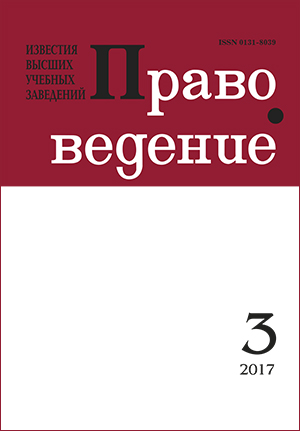Utilitarianism, economics and legal theory
Abstract
In this paper published in 1979, Richard Posner first introduced his original theory of wealth maximization. The work consists of several parts. The first part of the work deals with several preliminary problems, including the difference between positive and normative analysis and the establishment of a criterion of preference between ethical theories. The second part which Richard Posner believes to be the main one is devoted to the differences between utilitarianism and wealth maximization as normative systems, as well as to a brief review of the Kantian approach. Judge Posner emphasizes that the difference between the ability to receive pleasure and productive work for the benefit of others is a key to distinguish between utilitarianism and wealth maximization as ethical systems. The article also contains four annexes that deal with some normative disputes about the law from the point of view of economic analysis which the author carefully separates from utilitarianism. Thus, in particular, Posner discusses in detail the problem of the death penalty, the right to privacy, personal liberties, a market approach to the adoption of children and the acquisition of donor organs.
Keywords:
wealth maximization theory, utilitarianism, economic analysis of law, Chicago School of Economic Analysis, R. Dworkin, H. L. A. Hart, W. Pareto, J. Bentham, J. J. K. Smart
Downloads
References
Downloads
Published
How to Cite
Issue
Section
License
Articles of "Pravovedenie" are open access distributed under the terms of the License Agreement with Saint Petersburg State University, which permits to the authors unrestricted distribution and self-archiving free of charge.




